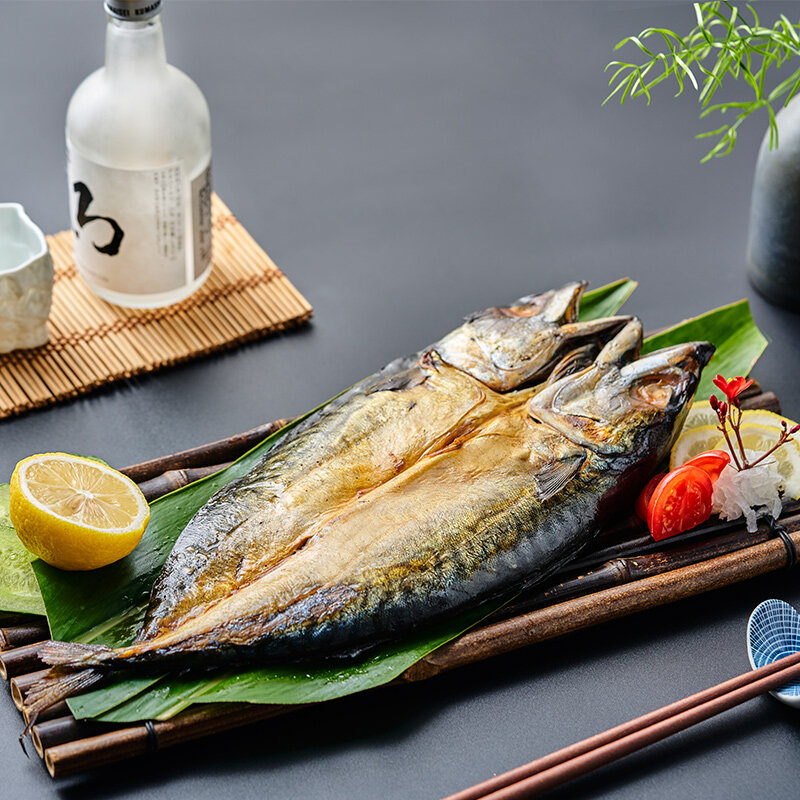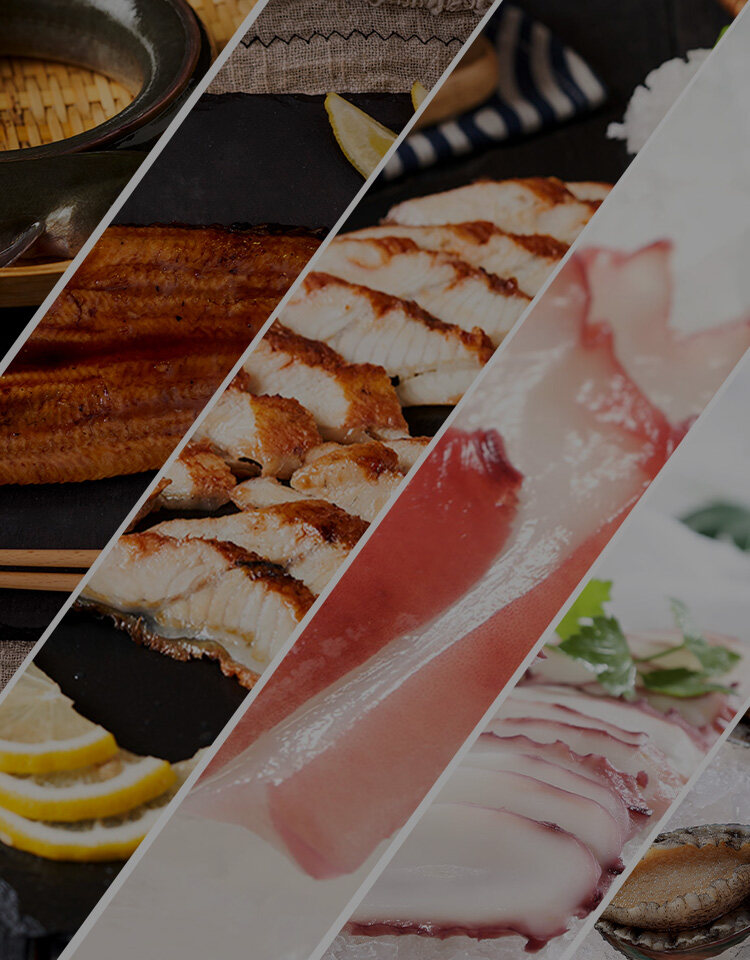Email cannot be empty
Password cannot be empty
checkout as a guest
or
Facebook
Google
Email format error
Email cannot be empty
Email already exists
6-20 characters(letters plus numbers only)
The password is inconsistent
Please enter the email address you’d like your password reset information sent to.
Email format error
Email cannot be empty
Email does not exist
Reset account password
For the account
6-20 characters(letters plus numbers only)
The password is inconsistent
Reset success
Your password was reset. You can log in using your new password.
Login


Frozen Fresh Seafood vs. Fresh Seafood: Which is Better for You?
2025-01-14 16:25:43
If you're standing in the seafood aisle of your local grocery store, staring at the fresh fish display and the nearby freezer section, you're not alone. The age-old debate: fresh seafood or frozen? Both have their merits, and today we're going to break it down for you. Whether you're a chef, a home cook, or just someone who enjoys a good seafood meal, this article will help you make an informed decision. So, let's dive in!
The Great Debate: Fresh vs. Frozen
When it comes to seafood, the terms "fresh" and "frozen" can be a bit misleading. Many people assume that fresh seafood is always the superior choice, but that's not necessarily the case. In fact, frozen seafood can often be just as good, if not better, in certain situations. Let's explore the pros and cons of each.
Fresh Seafood: The Traditional Choice
Pros of Fresh Seafood
1. Taste and Texture
Fresh seafood is often praised for its superior taste and texture. When you buy fresh fish from a reputable fishmonger, you can expect a firm texture and a clean, ocean-fresh flavor. There's something about the immediacy of fresh seafood that's hard to beat.
Imagine biting into a freshly caught salmon steak, grilled to perfection. The flesh is tender, flaky, and melts in your mouth. That's the beauty of fresh seafood.
2. Immediate Consumption
If you plan to cook and eat the seafood within a day or two, fresh is the way to go. It allows you to enjoy the seafood at its peak freshness without any additional processing.
3. Support Local Fishermen
Buying fresh seafood from local sources supports your local fishing community. It's a great way to contribute to the local economy and ensure that you're getting seafood that's been caught sustainably.
Cons of Fresh Seafood
1. Limited Availability
Fresh seafood is only as good as its source. If you live far from the coast or a major fishing area, the "fresh" seafood you see in the store might not be as fresh as you think. It could have been sitting around for days, losing its quality.
2. Price Fluctuations
The price of fresh seafood can be quite volatile. It depends on the season, the catch, and the demand. During peak seasons, you might find great deals, but off-season, the prices can skyrocket.
3. Waste
If you don't cook the fresh seafood within a day or two, it can spoil quickly. This leads to food waste, which is not only bad for your wallet but also for the environment.
Frozen Seafood: The Modern Alternative
Pros of Frozen Seafood
1. Consistent Quality
Frozen seafood is often flash-frozen at the peak of freshness, right on the fishing boat or at the processing facility. This locks in the nutrients and flavor, ensuring that you get a consistent product every time.
According to the National Fisheries Institute, frozen seafood can retain its nutritional value and quality for several months when stored properly.
2. Convenience
One of the biggest advantages of frozen seafood is its convenience. You can stock up on your favorites and have them ready to go whenever you need them. No more last-minute trips to the store for fresh fish that might not be available.
3. Cost-Effective
Frozen seafood is often more affordable than fresh seafood. You can buy in bulk and take advantage of sales, which can save you a significant amount of money in the long run.
4. Variety
With frozen seafood, you have access to a wider variety of species and cuts. You can try exotic fish and shellfish that might not be available fresh in your area.
Cons of Frozen Seafood
1. Texture and Taste
Some people argue that frozen seafood can have a slightly different texture and taste compared to fresh seafood. While modern freezing techniques have minimized this difference, there can still be a slight change in the texture after thawing.
2. Thawing Required
Frozen seafood requires thawing before cooking, which can be a bit of a hassle. However, with proper thawing techniques, such as placing the seafood in the refrigerator overnight, this is a minor inconvenience.
Fresh Fish Seafood Company vs. Frozen Seafood Company
Fresh Fish Seafood Company
1. Quality and Freshness
A good fresh fish seafood company will source its seafood directly from local fishermen or trusted suppliers. They will ensure that the seafood is delivered to you within hours of being caught, guaranteeing peak freshness.
A local seafood market in a coastal town might have a direct relationship with the fishermen. They can offer you the freshest catch of the day, such as succulent lobsters or plump oysters.
2. Expertise and Advice
Fresh fish seafood companies often have knowledgeable staff who can provide you with cooking tips and recipe ideas. They can help you choose the best cuts for your specific needs.
3. Community Connection
Supporting a fresh fish seafood company helps build a strong community. It promotes sustainable fishing practices and supports local jobs.
Frozen Seafood Company
1. Consistency and Availability
A frozen seafood company can provide you with a consistent supply of high-quality seafood year-round. They use advanced freezing techniques to preserve the freshness and nutritional value of the seafood.
A frozen seafood company like Dongshui Food offers a wide range of products, including eel, squid, surimi products, abalone, and octopus. These products are flash-frozen and can be stored for months without losing quality.
2. Sustainability and Traceability
Many frozen seafood companies are committed to sustainability. They source their seafood from certified sustainable fisheries and can provide detailed information about the origin and processing of their products.
3. Convenience and Cost
Frozen seafood companies offer the convenience of having a variety of seafood options available at any time. You can order in bulk and store the seafood in your freezer, reducing the need for frequent trips to the store.
Making the Right Choice for You
1. Consider Your Needs
If you live near a reliable source of fresh seafood and plan to cook it within a day or two, fresh might be the better choice. However, if you need the convenience of having seafood available at any time and want to save money, frozen is the way to go.
2. Think About Your Cooking Style
If you're an experienced cook who can tell the difference between fresh and frozen seafood, you might prefer fresh. But if you're a busy person who needs quick and easy meal solutions, frozen seafood can be a lifesaver.
3. Look at the Labels
Whether you choose fresh or frozen, always look at the labels. Check for information about the source, the date of catch, and any sustainability certifications. This will help you make an informed decision.
Conclusion
When deciding between fresh and frozen seafood, it really depends on what you like, what you need, and what works best for you. Both have their pros and cons, so it's important to consider your own preferences and circumstances.
Next time you're at the store, check out both the fresh and frozen seafood options. With some research and careful consideration, you can choose the best option for you and your family.
Looking for high-quality frozen seafood? Check out Dongshui Food for a wide range of delicious and sustainable options!
Contact us

